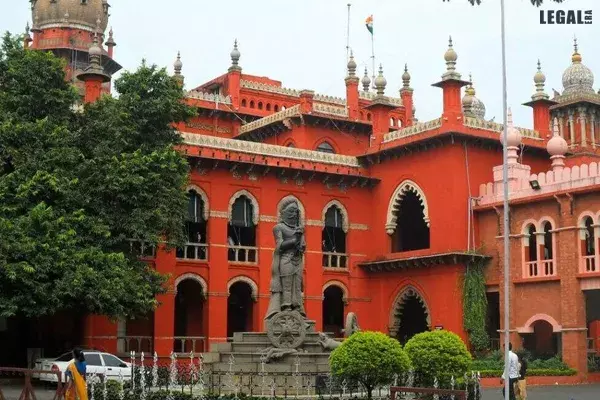Madras High Court rules capitation fees charged by institutions be taxed
Maintains education is not a commercial activity and it was an illegal norm;

Madras High Court rules capitation fees charged by institutions be taxed
Maintains education is not a commercial activity and it was an illegal norm
The Madras High Court has deprecated the practice of receiving capitation fees in exchange for admission by educational institutions.
The bench of Justice R Mahadevan and Justice Mohammed Shaffiq held that the norm was against the Tamil Nadu Educational Institutions (Prohibition of Collection of Capitation Fee) Act, 1992.
The court said, "It is beyond doubt that education can never be a commercial activity or a trade or business. Those in the field of education will have to abide by this guiding principle constantly and consistently. However, the undeniable reality is the collection of capitation fee as a condition precedent for admission into educational institutions."
The bench was hearing the appeals filed by the Income Tax Department challenging the single-judge bench's order allowing tax exemption for a group of charitable institutions.
The appeals in the present case raised the issues of the blatant violation of the Capitation Fee Act by the institutions and drawing a premium on their illegal act by seeking exemption under the Income Tax Act.
The court noted that though the income of the educational institutions was exempted under the IT Act, the benefit could be availed only if it was used by the institutions exclusively for the purpose for which they were established.
However, despite the institutions claiming the donations were paid voluntarily, the court examined that the sworn statements of the petitioners clearly showed it was not true.
The court observed that the modus operandi of the college was to seek capitation fees, not directly from the parents, but their relatives/friends were to transfer the amount to any of the sister trusts. The amount was later transferred into the institution's fund. Through this process, the sister trusts also claimed tax exemption by claiming that the payments were for a 'charitable purpose.'
The court stated, "The fact that a long-winding and indirect route has been adopted for capitation fee to reach the institution cannot change the character of the payment from an illegal capitation fee to a voluntary contribution/donation."
The bench ruled that unless the payment was made gratuitously without any consideration, it could not be termed as a 'voluntary contribution' for claiming tax exemption. It said that the tribunal and the first appellate authority had erroneously granted tax exemption by claiming that the money was used for the objects of the institutions.
Reversing the findings of the tribunal and the appellate court, the judges directed the assessing authority to proceed based on the tax assessment. They directed the authorities to cancel the registration certificate of the institutes and not treat them as charitable institutions.
The court lamented that though there were State laws and precedents ruling the collection of capitation fees as illegal, the menace could not be curtailed. It noted that privatization had also aided in the collection of the capitation fees.
Thus, the bench suggested that the State could set up a web portal wherein any information about the charging of capitation fees by private institutions could be furnished by the students, parents, or anyone having first-hand information.
The portal would be maintained by the National Informatics Centre and the Information Technology and Digital Services Department.
The State was also directed to give wide publicity about the portal in vernacular and English newspapers. It advised that at the time of admission, parents should be handed over pamphlets containing the information.

